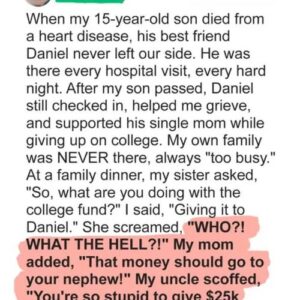He’s 35, married, and had my grandson last year. My daughter-in-law (DIL) wants to go back to working. Since I’m retired, my son asked me to take care of my grandson. I asked him how long he needed me to do it, to which my son replied that they had NO plan for it.
I asked if they had considered daycare, and he said that neither he nor his wife were okay with it. I also suggested they ask his wife’s parents, and he said that they didn’t have time for it.
He thought of asking me because I had helped his older brother, and it would “basically be the same thing.”
But the point is, I was 42 then and I’m 59 now. I didn’t have the health issues that I have nowadays, like back pain and arthritis. Also, he is a married man with a wife by his side, not a single 16-year-old with a baby.
So, I decided to sit down with my son and have an honest conversation.
“Look, I love my grandson dearly, and I want to help, but I can’t do it full-time like I did with your brother. My health isn’t what it used to be. I have back pain and arthritis now.”
My son looked surprised. “But you seemed fine when you helped last time.”
“That was nearly two decades ago,” I reminded him gently. “I understand you don’t want to use daycare, but there are other options. Maybe you could hire a nanny or find a babysitter for a few days a week. I can help out on occasion, but I can’t be the primary caregiver.”
He looked disappointed. “I just thought it would be easier if you did it. It’s not that different from before.”
“It’s very different,” I said firmly. “You’re a grown man with a wife, not a teenage parent. You need to take responsibility and find a solution that works for your family without relying entirely on me.”
We discussed various alternatives, including part-time daycare, nanny-sharing with another family, and flexible work schedules. My son realized that he and his wife needed to explore all options and not just assume I could handle the situation.
In the end, they found a part-time nanny who could help during the week, and I agreed to watch my grandson once or twice a week when they needed extra support. It wasn’t the solution my son initially wanted, but it was a compromise that acknowledged my limitations while still offering my grandson the care and love he deserved. I hope this experience taught my son that while family is there to help, it’s also important to be realistic and considerate of each other’s circumstances. And as for me, I felt relieved and validated for standing up for my own needs while still being there for my family in a way that was manageable for me.





